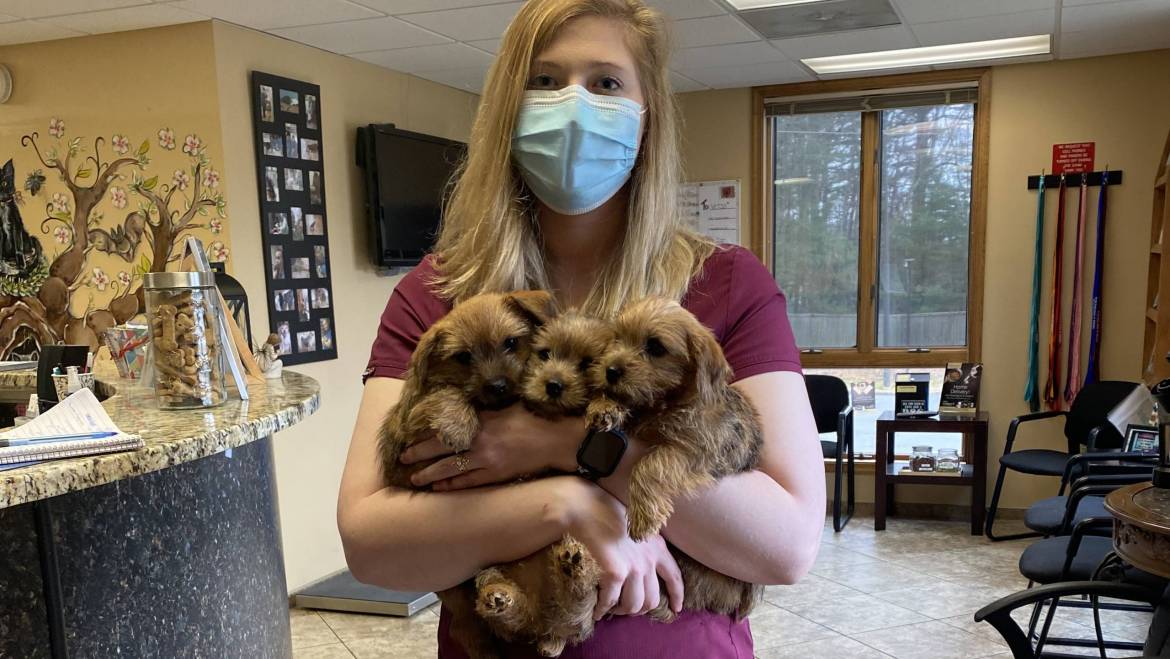Set Yourself Up for Veterinary Career Success
So you’ve gotten your four-year degree and are off to veterinary school. Congratulations! The next four years will be an exciting time, as you’ll be surrounded by other students and veterinary professionals who are as passionate about animals and advancing veterinary medicine as you are.
Your time in veterinary school will also be filled with a multitude of opportunities for you to reach toward your goal of delivering the best patient care possible after graduation. Mentorships, externships, and internships for veterinary students are some of the best ways to get practical experience, learn which areas you’re passionate about, find out which environments you thrive in, and ultimately prepare yourself for a rewarding career as a veterinarian.
Identifying and choosing the right opportunities to set yourself up for post-veterinary-school success can be challenging. Here is some expert advice to help guide your career decisions during your time in veterinary school.
Access Reliable Resources
One great, reliable resource for veterinary students is the AVMA. They have several free resources available to give you tips on school and options for internships. Their student section focuses on helping to support not only your career goals but also your financial health and well-being, and there are even student chapters that you can become involved in to help make connections during your time in veterinary school.
Your respective veterinary school likely also has resources available to help guide your career decisions. When it comes time to explore internships for veterinary students, your school’s career service office can help by connecting you with clinics that have a pre-established relationship with the school and by letting you know which nearby practices typically offer mentorship. And when you’re trying to determine which area of veterinary medicine you’d like to focus on or which type of working environment would best promote your success, discussing local options with career service counselors can help.
Connecting with a multi-veterinary practice ownership team like VetEvolve can give you access to several potential opportunities at different practices in your area, as well as the advice and expertise of veterinary practice leaders and mentors. These connections can help you secure a job down the line — whether a role opens up at their practice, or they’re willing to put in a good word for you elsewhere. They can also help to support you in your education and career decisions beyond graduation.
Ask About Recent Interns or Externs
VetEvolve veterinarian Dr. Sonali Kadam (Companion Animal Clinic, Blacksburg, Virginia) recommends finding out how many other students have gone through internships or externships at a clinic during the intern/extern interview process, so you can gauge their level of dedication to training students. The more often a practice accepts students, the more committed they likely are to helping the next generation of vets.
You can also ask other students at your veterinary school about their internship and externship experiences, to see if you would like to follow in their footsteps. If there is a specific practice that many students have worked with previously, they’re more likely to offer internships more often, and they’ll likely have a more solidified plan in place for mentorship.
Visit a Practice Before Committing
Dr. Kadam also recommends making sure you fit in with the overall environment and culture of a practice to ensure your best work during an internship or externship. Bring good questions and a sense of genuine curiosity to your interview — this will not only show your genuine interest to the mentoring practitioner and team but will also give you more information to gauge what life would be like interning or working there.
If you mesh with the other professionals there and think you would work well within the specific practice environment and its rules, then it may be a good opportunity for an internship or externship as a veterinary student. Who knows, if all goes well, it just might turn into a job opportunity post-graduation!
Consider Emergency Experience
Dr. Jenna Garza, a veterinarian at another VetEvolve practice (VETSS, Charlottesville, Virginia), recommends finding an early career opportunity in emergency medicine, as “you’ll learn twice as much in emergency medicine as you would in general practice.” The fast-moving pace and variety of animals and conditions you’ll see working in emergency medicine will set you up to be well-rounded in your long-term veterinary career.
Regardless of where you want your veterinary career to take you, be sure to consider opportunities that take you out of your comfort zone and help you to learn and grow along the way, especially early on. If you never get experience with a certain area, then you may be missing out on an area you’re really passionate about.
Always Keep Your Future in Mind
This is the time to discover what’s important to your career success and ensure that it’s in place for your next step — whether that’s continued mentorship, the ability to branch out in new specializations, or something else. As a veterinary student, you’ll be immersed in a community of aspiring veterinarians and professionals that can help you explore your interests and what you’re looking for in a long-term career.
At VetEvolve, we help veterinary students gain experience at many of our practices in the Eastern U.S. We continue to support young veterinary professionals throughout their careers with an emphasis on individual growth and development. We’re not just any practice owners — our focus is on helping people be the best they can be and ensuring veterinarians have the resources they need to serve their patients and community.
Reach out to VetEvolve to discuss mentorships, externships, and internships for veterinary students that will position you for post-grad success.

